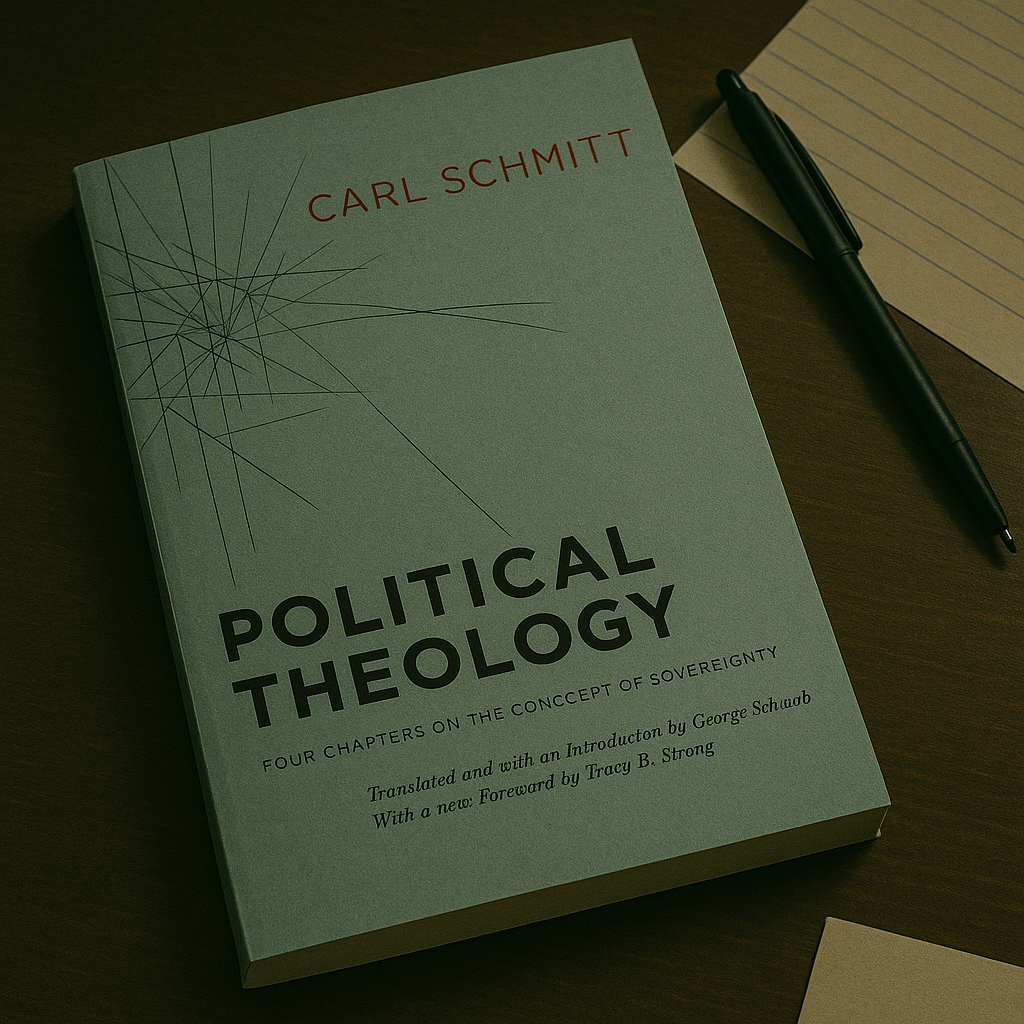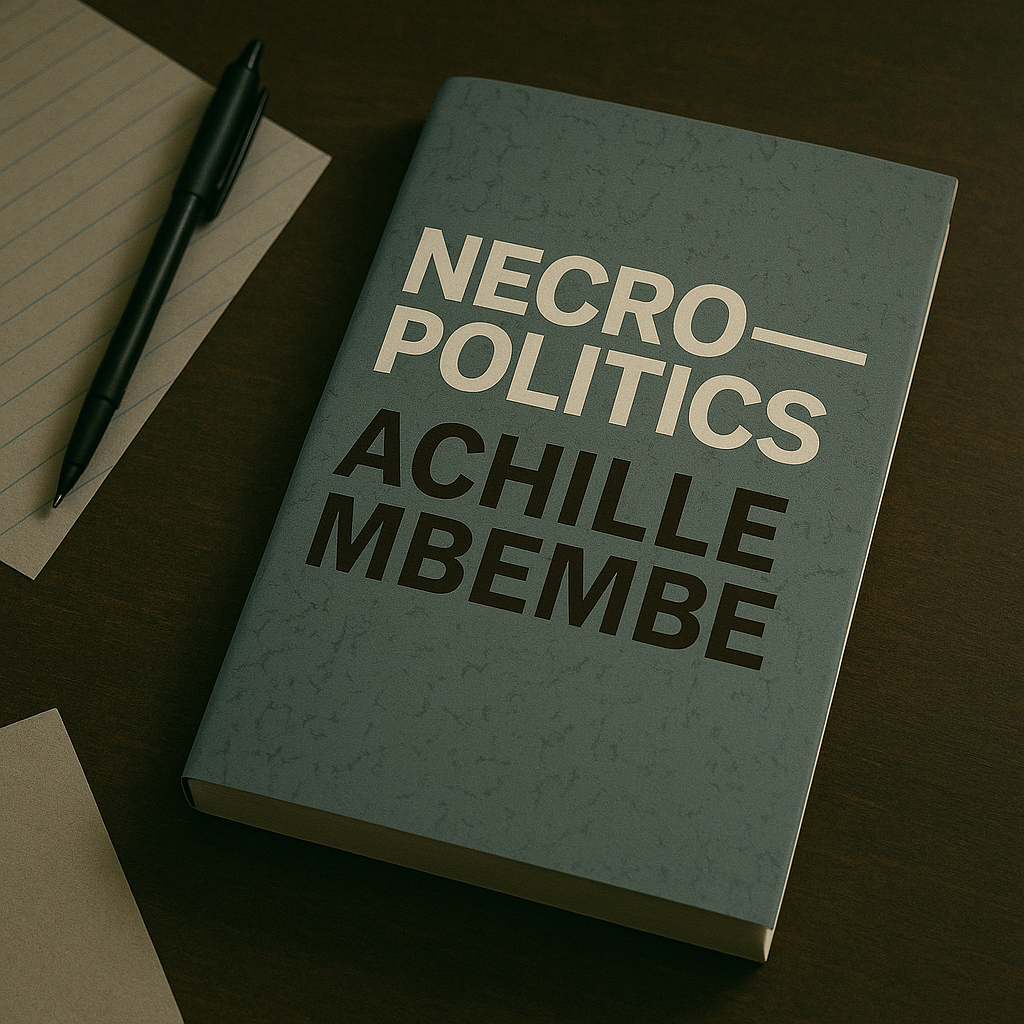
All Content
Welcome to the Institute for the Study of States of Exception (ISSE) main content page, a single source for all posts from the Institute, including commentary on global events, book reviews, academic literature, links to our podcasts, and additional resources. Check back regularly for more content from us.
“Sovereign is he who decides the exception.”
— Carl Schmitt (Political Theology: Four Chapters on the Concept of Sovereignty, 1922)
The Supreme Court’s Contribution to the Confrontation Over Emergency Powers - Lawfare
Three significant questions behind President Trump’s declaration of a national emergency during his first term to build a border wall have a single, surprising answer: Why did Congress in the National Emergencies Act (NEA) of 1976 delegate such broad and vague power to the president to declare national emergencies? Why wasn’t Congress more specific in defining the circumstances that constitute a national emergency? And why are the courts now going to have the final word in determining whether the president has properly invoked or abused the power the NEA gives him?
The answer to all these questions lies in a 1983 Supreme Court decision, INS v. Chadha. That decision, rightly or wrongly, decimated the policy scheme Congress had created for overseeing the president’s declaration of emergency powers—and nearly 200 other federal statutes in which Congress since the 1930s had created a similar scheme…
The genesis of the ‘Exceptional’ Republic: the permanency of the political crisis and the constitution of legal emergency power in Turkey
Almost half of the political life has been experienced under the state of emergency and state of siege policies in the Turkish Republic. In spite of such a striking number and continuity in the deployment of legal emergency powers, there are just a few legal and political studies examining the reasons for such permanency in governing practices. To fill this gap, this paper aims to discuss one of the most important sources of the ‘permanent’ political crisis in the country: the historical evolution of legal emergency power. In order to highlight how these policies have intensified the highly fragile citizenship regime by weakening the separation of power, repressing the use of political rights and increasing the discretionary power of both the executive and judiciary authorities, the paper sheds light on the emergence and production of a specific form of legality based on the idea of emergency and the principle of executive prerogative…
Rethinking the Federal Emergency Powers Regime
Emergency has assumed central importance in the United States legal system. In 2019, President Trump declared an emergency at the southern border after Congress declined to fund his wall; critics responded with legal challenges and proposed reforms to the statute he invoked, the National Emergencies Act (NEA). Emergency powers have also played a key role during the COVID-19 pandemic. This Article conducts a comprehensive survey of emergency powers in the United States. It shows that the NEA is only one among many grants of authority presidents can call upon in a crisis, alongside other emergency schemes, specially delegated statutory power, nonemergency statutes, and inherent executive authority. It argues that the United States' fragmented emergency powers scheme raises not only well-known risks of overreach presidents abusing emergency authority to gain power or erode democracy, but also less appreciated risks of underreach where presidents are unwilling or unable to deal adequately with a crisis…
Normative Evaluation of Presidential Powers in Emergency Situations: Constitutional Limits and Legal Guarantees in Indonesia
This study examines the exercise of presidential powers in emergency situations within the framework of Indonesia’s 1945 Constitution, focusing on constitutional limits and legal guarantees. Using a qualitative approach with a normative juridical methodology, the research analyzes constitutional provisions, statutory regulations, and judicial practices to evaluate the effectiveness of Indonesia's legal framework in balancing crisis management with the preservation of democratic principles. The findings reveal ambiguities in emergency criteria, gaps in accountability mechanisms, and concerns over proportionality in restricting fundamental rights. Comparative insights and recommendations are provided to enhance legal clarity, strengthen oversight, and safeguard constitutional democracy during emergencies…
Political Theology
Carl Schmitt’s influential treatise, Political Theology (1922), represents a seminal and provocative contribution to political theory, particularly in its exploration of sovereignty, law, and states of exception. It remains a pivotal, yet contentious work for understanding the mechanics of sovereign power and the legal foundations of states of exception. Schmitt's central thesis, that the sovereign is defined primarily by the authority to decide upon exceptions or extraordinary circumstances, recasts traditional understandings of political legitimacy and authority…
A Guide to Emergency Powers and their Use - Brennan Center for Justice
In February 2019, President Donald Trump declared a national emergency to secure funding that Congress had expressly denied for the construction of a wall along the southern border. Before that declaration, most Americans were unaware that a vast set of laws gives the president greatly enhanced powers during emergencies. The Brennan Center, building on previous search, has (as of July 2025) identified 137 statutory powers that may become available to the president when he declares a national emergency, including the power President Trump invoked to help build the wall (10 U.S.C. 2808 (a)). An additional 13 statutory powers become available when a national emergency is declared by Congress…
State of Exception
Giorgio Agamben’s State of Exception (2005) is among the most influential texts in contemporary political philosophy addressing the implications of emergency powers and their relationship to democratic governance. Agamben not only builds upon but fundamentally reconfigures Carl Schmitt's seminal theory of sovereignty, meticulously unpacking what he identifies as the central paradox facing modern states: how democratic governments suspend the law purportedly in its defense. For Agamben, the state of exception represents a "zone of indistinction" where the boundaries between law and lawlessness, democracy and authoritarianism, become dangerously blurred…
A Spatial Theory of the Camp: Geopolitics, Biopolitics and the Immunitarian State
From concentration camps to refugee settlements, there is little consensus about what exactly defines ‘the camp’. This timely and comprehensive book adopts a geographical perspective to develop a spatial theory of the camp, advancing the interdisciplinary field of camp studies. Richard Carter-White and Claudio Minca explore the spatial logics and practices that unite different camps, demonstrating why the camp has become such an integral tool of contemporary governance and what this reveals about the geopolitics and biopolitics of the modern nation-state…
Judicial Review in Times of Emergency: From the Founding through the COVID-19 Pandemic
In the immediate wake of the assassination of President Abraham Lincoln and just ten days after newly sworn-in President Andrew Johnson issued an order calling for a military trial of the alleged conspirators in Lincoln’s killing, the government brought the accused before a tribunal composed of nine military officers at the Old Arsenal Penitentiary in Washington, D.C. The President’s order empowered the commission to set its own rules of procedure. By the ensuing rules, a majority vote of the officers could sustain a guilty verdict, a two-thirds majority vote could sustain a death sentence, and the only avenue for appeal was to seek a pardon from the President…
Executives in Crisis: An Examination of Formal and Informal Emergency Powers
This Article examines the ways in which various constitutional structures grant and constrain emergency powers. Specifically, the Article examines how a country defines the emergency powers of its chief executive and whether that definition is formal or informal. The Article also explores what effect the distinction between formal and informal powers has on a constitutional system’s ability to prevent a devolution of constitutional norms. The Article undertakes this inquiry by examining the use of emergency powers in different countries and at different times. It examines the constitutions of Germany’s Weimar Republic, Charles de Gaulle’s Fifth French Republic, and Indira Gandhi’s rule in India, as well as specific examples from United States history…
Crisis as Governance: How Emergency Became the Default Condition - The Deeper Thinking Podcast
We used to treat crisis as the exception. Today, it is the rule. This episode investigates how emergency governance became a permanent operating mode—reshaping democracy, law, and freedom. Governments no longer return to normal. They have learned to govern through disruption.
Drawing on Giorgio Agamben, Michel Foucault, Naomi Klein, and Edward Snowden, we trace the transformation of power across terrorism, pandemics, and economic collapse. What emerges is a deeply revealing pattern: emergency as the default strategy of control…
Giorgio Agamben: Homo Sacer and State of Exception
At the edge of law and life, Giorgio Agamben highlights a hidden paradigm of power and exclusion. A paradigm found in ancient Rome that still makes its mark on modern society. Is the rule law, or is exceptions to the law, the rule? Is modern democracy rooted in its definition? Agamben leaves us with interesting answers that may inform the future.
The Lawfare Podcast Bonus Edition: Steve Vladeck on Emergency Powers and Coronavirus
What can the president do in a national emergency? What limits what the president can do? What authorizes the president to do all those things he can do in a national emergency? Is the president abusing, misusing, using appropriately, or under-using emergency powers during the coronavirus crisis? And what are the logical end points for how far this could go? For this bonus edition, Benjamin Wittes got on the phone with Steve Vladeck to work through these questions and talk about all things presidential emergency powers.
Taking Exception to States of Exception
In this episode from the Center for Strategic and International Studies’ podcast series “35 West,” Christopher Hernandez-Roy sits down with Steven Dudley, Co-Director of InSight Crime and author of the award-winning book MS-13: The Making of America’s Most Notorious Gang. Together, they unpack the nature of El Salvador's state of exception, what differentiates it from past hardline policies, and the threat this "Plan Bukele" poses to El Salvador and to democracies throughout the region. They also delve into the impact of both gang violence and counter-gang repression on Salvadoran citizens, and what can be done to promote lasting security in Central America.
The rise and fall of South Korea’s Yoon Suk-yeol
South Korea’s Constitutional Court formally removed President Yoon Suk-yeol from office on April 4, 2025, ending a political deadlock that had gripped the country. The ruling also caps Yoon’s rapid rise from the prosecutor’s office to the presidency after he was elected in 2021 by the smallest margin in South Korean history. Yoon’s tenure as president was rocked by scandals and protests ahead of his failed declaration of martial law, a move that triggered his impeachment and eventual downfall.
Unprecedented use of “emergency” power - Brennan Center for Justice
Not even a year into his second term, President Trump has (as of 11 August 2025) declared 11 national emergencies, exceeding every president’s single-term total except for his own previous record of 13 national emergency declarations.
An embedded chart in this report depicts National emergencies declared annually by U.S. Presidents, from 1979 to 2025 (as of 11 August 2025)…
Ecuador’s Security Challenges and the Government’s Response
In January 2024, following a series of dramatic public security incidents, including the escape from prison of Adolfo Macias (“Fito”), the leader of the violent Ecuadoran gang Los Choneros, and the takeover of an Ecuadoran television station during a live broadcast, the newly elected government of Daniel Noboa declared a “state of internal warfare” in the country. Through Presidential Decree 111, he designated 22 violent criminal entities operating in the country as “terrorist organizations” and authorized the employment of the Armed Forces in a broad range of security operations from supporting the control of the nation’s interior and borders, to deployment in prisons, to operations against illegal mining…
Erdoğan’s presidential regime and strategic legalism: Turkish democracy in the twilight zone
President Erdoğan and the AKP government initiated a comprehensive restoration process immediately after the failed coup in mid-July 2016. In fact, the country has been experiencing a very comprehensive and violent regime transformation since this time. I assert that recent political developments paved the way for institutionalization of a ‘plebiscitary presidential regime’ that depends on a particular combination of supreme power of the leader, an extremely weak parliament, and elections of a plebiscitary character. In this context, the paper aims to shed light on the role of the new strategic legalism which allows rule of law to be replaced by a rule by law approach, the executive prerogative principle to be dominant, and the law to be used for demobilization, all playing a highly critical role in the suppression of democratic opposition…
Necropolitics
In Necropolitics (2019), Achille Mbembe, expanding upon a 2003 essay of the same name, offers a profound reconceptualization of sovereign power that significantly advances our understanding of states of exception. Building upon Michel Foucault's biopolitics, Mbembe introduces "necropolitics"—the politics of death whereby sovereign power, deeply entrenched in colonial and racial hierarchies, dictates who may live and who must die. What distinguishes Mbembe's intervention is his insistence that states of exception have evolved beyond temporary suspensions of normal legal order (as theorized by Carl Schmitt and Giorgio Agamben) into permanent techniques of governance, particularly for subjugated populations…
Administrative Law as a Mockery of the Constitutional Controls of State of Exception: Colombia, Covid-19 and Obligatory Preventive Lockdown
The objective of this article is to demonstrate how Colombia's mandatory preventive lock-down decrees during Covid-19 bypassed the constitutional controls designed to regulate states of exception. This situation resulted in a violation of the fundamental right to free movement. The methodology used in this study begins with an examination of the mandatory preventive lockdown decrees. It then continues with an analysis of the legal foundations on which these decrees were based to justify exceptional orders. Finally, the article reviews the jurisprudence of the Constitutional Court of Colombia and the Consejo de Estado, focusing on the reasons both courts were unable to exercise control over these decrees. The conclusion is that these decrees circumvented automatic constitutional controls, and any legal challenge against them proved ineffective due to procedural delays.…




















